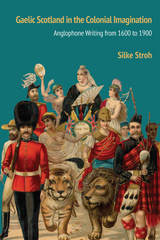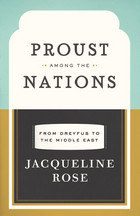7 books about Genet, Jean

The Crime of Jean Genet
Dominique Eddé
Seagull Books, 2016
Now in paperback, The Crime of Jean Genet is a powerful personal account of the influence of one writer on another and one of the most penetrating explorations yet of Genet’s work and achievement.
Dominique Eddé met novelist and playwright Jean Genet in the 1970s. And she never forgot him. “His presence,” she writes, “gave me the sensation of icy fire. Like his words, his gestures were full, calculated, and precise. . . . Genet’s movements mimicked the movement of time, accumulating rather than passing.”
This book is Eddé’s account of that meeting and its ripples through her years of engaging with Genet’s life and work. Rooted in personal reminiscences, it is nonetheless much broader, offering a subtle analysis of Genet’s work and teasing out largely unconsidered themes, like the absence of the father, which becomes a metaphor for Genet’s perpetual attack on the law. Tying Genet to Dostoevsky through their shared fascination with crime, Eddé helps us more clearly understand Genet’s relationship to France and Palestine, Judaism, Christianity, Islam, the theater, and even death. A powerful personal account of the influence of one writer on another, The Crime of Jean Genet is also one of the most penetrating explorations yet of Genet’s work and achievement.
Dominique Eddé met novelist and playwright Jean Genet in the 1970s. And she never forgot him. “His presence,” she writes, “gave me the sensation of icy fire. Like his words, his gestures were full, calculated, and precise. . . . Genet’s movements mimicked the movement of time, accumulating rather than passing.”
This book is Eddé’s account of that meeting and its ripples through her years of engaging with Genet’s life and work. Rooted in personal reminiscences, it is nonetheless much broader, offering a subtle analysis of Genet’s work and teasing out largely unconsidered themes, like the absence of the father, which becomes a metaphor for Genet’s perpetual attack on the law. Tying Genet to Dostoevsky through their shared fascination with crime, Eddé helps us more clearly understand Genet’s relationship to France and Palestine, Judaism, Christianity, Islam, the theater, and even death. A powerful personal account of the influence of one writer on another, The Crime of Jean Genet is also one of the most penetrating explorations yet of Genet’s work and achievement.
[more]

Disturbing Attachments
Genet, Modern Pederasty, and Queer History
Kadji Amin
Duke University Press, 2017
Jean Genet (1910–1986) resonates, perhaps more than any other canonical queer figure from the pre-Stonewall past, with contemporary queer sensibilities attuned to a defiant non-normativity. Not only sexually queer, Genet was also a criminal and a social pariah, a bitter opponent of the police state, and an ally of revolutionary anticolonial movements. In Disturbing Attachments, Kadji Amin challenges the idealization of Genet as a paradigmatic figure within queer studies to illuminate the methodological dilemmas at the heart of queer theory. Pederasty, which was central to Genet's sexuality and to his passionate cross-racial and transnational political activism late in life, is among a series of problematic and outmoded queer attachments that Amin uses to deidealize and historicize queer theory. He brings the genealogy of Genet's imaginaries of attachment to bear on pressing issues within contemporary queer politics and scholarship, including prison abolition, homonationalism, and pinkwashing. Disturbing Attachments productively and provocatively unsettles queer studies by excavating the history of its affective tendencies to reveal and ultimately expand the contexts that inform the use and connotations of the term queer.
[more]

Gaelic Scotland in the Colonial Imagination
Anglophone Writing from 1600 to 1900
Silke Stroh
Northwestern University Press, 2017
Can Scotland be considered an English colony? Is its experience and literature comparable to that of overseas postcolonial countries? Or are such comparisons no more than patriotic victimology to mask Scottish complicity in the British Empire and justify nationalism? These questions have been heatedly debated in recent years, especially in the run-up to the 2014 referendum on independence, and remain topical amid continuing campaigns for more autonomy and calls for a post-Brexit “indyref2.” Gaelic Scotland in the Colonial Imagination offers a general introduction to the emerging field of postcolonial Scottish studies, assessing both its potential and limitations in order to promote further interdisciplinary dialogue. Accessible to readers from various backgrounds, the book combines overviews of theoretical, social, and cultural contexts with detailed case studies of literary and nonliterary texts. The main focus is on internal divisions between the anglophone Lowlands and traditionally Gaelic Highlands, which also play a crucial role in Scottish–English relations. Silke Stroh shows how the image of Scotland’s Gaelic margins changed under the influence of two simultaneous developments: the emergence of the modern nation-state and the rise of overseas colonialism.
[more]

A Genetic Approach to Structures in the Work of Jean Genet
Camille Naish
Harvard University Press, 1978
Camille Naish has written the first formalist study of the provocative French writer Jean Genet. She treats his major texts, from the erotic homosexual elegy Le Condamne a mort (1942) to the highly controversial epic Les Parvents (1966), and links the characteristic structure of his later plays with his relatively obscure first poems and early novels. Dr. Naish’s study insightfully discusses previous critical responses to Genet, examines Genet’s relationship with Cocteau and the Surrealists, and finally takes an original look at humor and parody in this unusual writer.
[more]

Jean Genet
Stephen Barber
Reaktion Books, 2004
An engaging and challenging introduction to Jean Genet, this concise biography of the French writer and his work cuts directly to the intersection of thought and life that was essential to Genet's creativity. Arguing that Genet's life was an extraordinary spectacle in which the themes of his most revolutionary works were played out, Stephen Barber gives both the work and its singular inspiration in Genet's life their full due.
Abandoned, arrested, and repeatedly incarcerated, Genet, who died in 1986, led a life that could best be described as a tour of the underworld of the twentieth century.
Similarly, Genet's work is recognized by its nearly obsessive and often savage treatment of certain recurring themes. Sex, desire, death, oppression, domination-these ideas, central to Genet's artistic project, can be seen as preoccupations that arose directly from the artist's travels, imprisonments, sexual and emotional relationships, and political engagements and protests. This trenchant volume focuses directly on the moments in Genet's life in which those preoccupations are vividly projected in his novels, theater works, and film projects.
Genet's works have been hugely influential for a vast array of writers, filmmakers, choreographers, and directors, especially at moments of social crisis; thus Genet's life is not only at the root of his own work but also that of many important artists of the twentieth century. With its frank and illuminating introduction by Edmund White, Jean Genet gives readers access to this brilliant and brutal mind.
Abandoned, arrested, and repeatedly incarcerated, Genet, who died in 1986, led a life that could best be described as a tour of the underworld of the twentieth century.
Similarly, Genet's work is recognized by its nearly obsessive and often savage treatment of certain recurring themes. Sex, desire, death, oppression, domination-these ideas, central to Genet's artistic project, can be seen as preoccupations that arose directly from the artist's travels, imprisonments, sexual and emotional relationships, and political engagements and protests. This trenchant volume focuses directly on the moments in Genet's life in which those preoccupations are vividly projected in his novels, theater works, and film projects.
Genet's works have been hugely influential for a vast array of writers, filmmakers, choreographers, and directors, especially at moments of social crisis; thus Genet's life is not only at the root of his own work but also that of many important artists of the twentieth century. With its frank and illuminating introduction by Edmund White, Jean Genet gives readers access to this brilliant and brutal mind.
[more]

Proust among the Nations
From Dreyfus to the Middle East
Jacqueline Rose
University of Chicago Press, 2011
Known for her far-reaching examinations of psychoanalysis, literature, and politics, Jacqueline Rose has in recent years turned her attention to the Israel-Palestine conflict, one of the most enduring and apparently intractable conflicts of our time. In Proust among the Nations, she takes the development of her thought on this crisis a stage further, revealing it as a distinctly Western problem.
In a radical rereading of the Dreyfus affair through the lens of Marcel Proust in dialogue with Freud, Rose offers a fresh and nuanced account of the rise of Jewish nationalism and the subsequent creation of Israel. Following Proust’s heirs, Beckett and Genet, and a host of Middle Eastern writers, artists, and filmmakers, Rose traces the shifting dynamic of memory and identity across the crucial and ongoing cultural links between Europe and Palestine. A powerful and elegant analysis of the responsibility of writing, Proust among the Nations makes the case for literature as a unique resource for understanding political struggle and gives us new ways to think creatively about the violence in the Middle East.
[more]

Sovereignty, Inc.
Three Inquiries in Politics and Enjoyment
William Mazzarella, Eric L. Santner, and Aaron Schuster
University of Chicago Press, 2020
What does the name Trump stand for? If branding now rules over the production of value, as the coauthors of Sovereignty, Inc. argue, then Trump assumes the status of a master brand whose primary activity is the compulsive work of self-branding—such is the new sovereignty business in which, whether one belongs to his base or not, we are all “incorporated.”
Drawing on anthropology, political theory, philosophy, psychoanalysis, and theater, William Mazzarella, Eric L. Santner, and Aaron Schuster show how politics in the age of Trump functions by mobilizing a contradictory and convoluted enjoyment, an explosive mixture of drives and fantasies that eludes existing portraits of our era. The current political moment turns out to be not so much exceptional as exceptionally revealing of the constitutive tension between enjoyment and economy that has always been a key component of the social order. Santner analyzes the collective dream-work that sustains a new sort of authoritarian charisma or mana, a mana-facturing process that keeps us riveted to an excessively carnal incorporation of sovereignty. Mazzarella examines the contemporary merger of consumer brand and political brand and the cross-contamination of politics and economics, warning against all too easy laments about the corruption of politics by marketing. Schuster, focusing on the extreme theatricality and self-satirical comedy of the present, shows how authority reasserts itself at the very moment of distrust and disillusionment in the system, profiting off its supposed decline. A dazzling diagnostic of our present, Sovereignty, Inc., forces us to come to terms with our complicity in Trump’s political presence and will immediately take its place in discussions of contemporary politics.
Drawing on anthropology, political theory, philosophy, psychoanalysis, and theater, William Mazzarella, Eric L. Santner, and Aaron Schuster show how politics in the age of Trump functions by mobilizing a contradictory and convoluted enjoyment, an explosive mixture of drives and fantasies that eludes existing portraits of our era. The current political moment turns out to be not so much exceptional as exceptionally revealing of the constitutive tension between enjoyment and economy that has always been a key component of the social order. Santner analyzes the collective dream-work that sustains a new sort of authoritarian charisma or mana, a mana-facturing process that keeps us riveted to an excessively carnal incorporation of sovereignty. Mazzarella examines the contemporary merger of consumer brand and political brand and the cross-contamination of politics and economics, warning against all too easy laments about the corruption of politics by marketing. Schuster, focusing on the extreme theatricality and self-satirical comedy of the present, shows how authority reasserts itself at the very moment of distrust and disillusionment in the system, profiting off its supposed decline. A dazzling diagnostic of our present, Sovereignty, Inc., forces us to come to terms with our complicity in Trump’s political presence and will immediately take its place in discussions of contemporary politics.
[more]
READERS
Browse our collection.
PUBLISHERS
See BiblioVault's publisher services.
STUDENT SERVICES
Files for college accessibility offices.
UChicago Accessibility Resources
home | accessibility | search | about | contact us
BiblioVault ® 2001 - 2024
The University of Chicago Press









